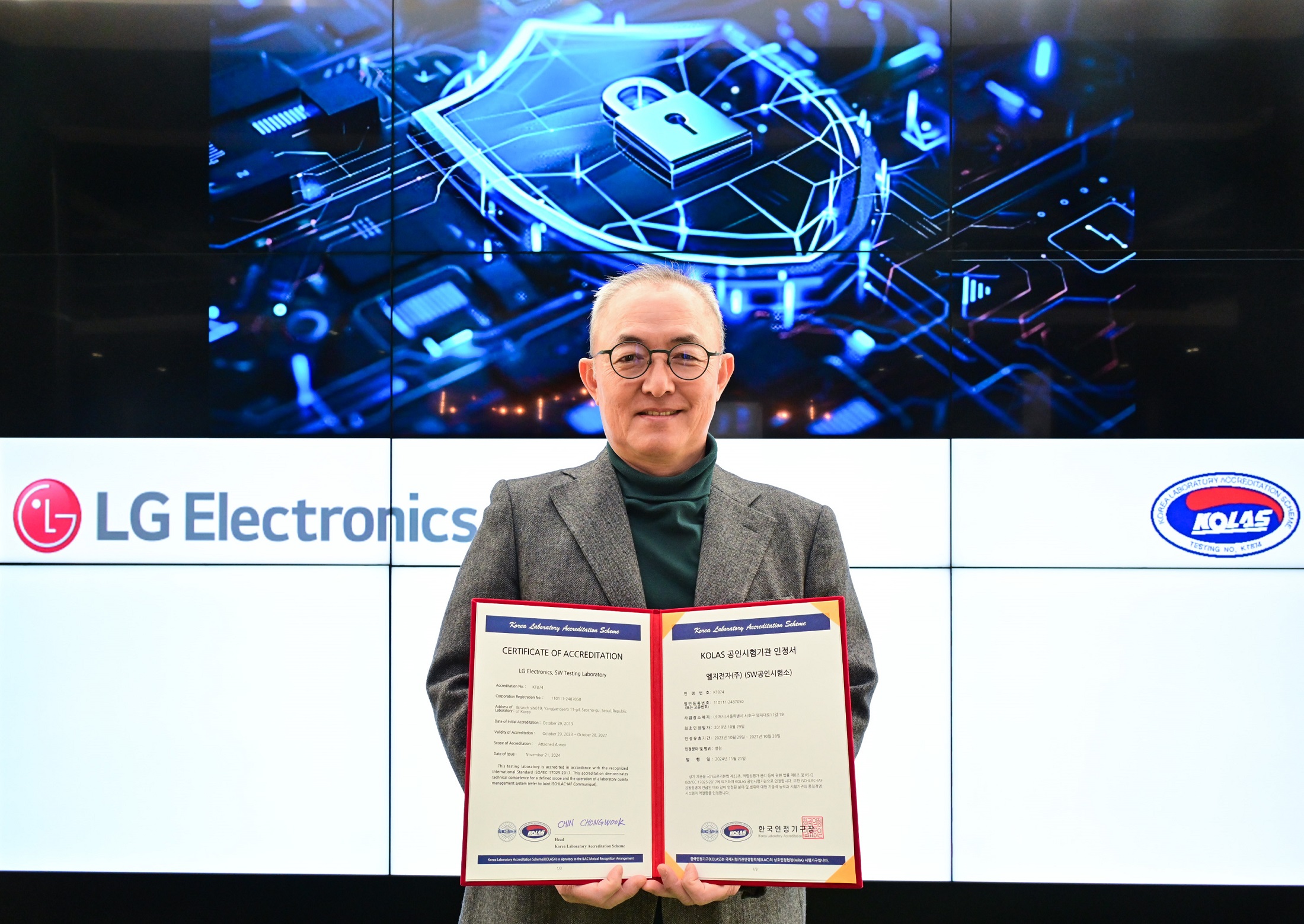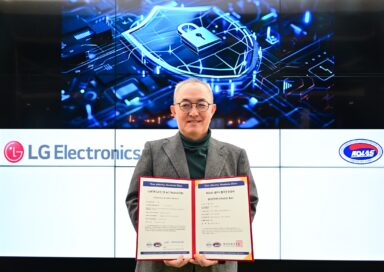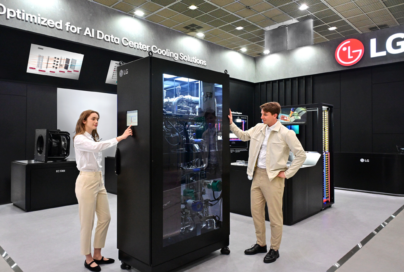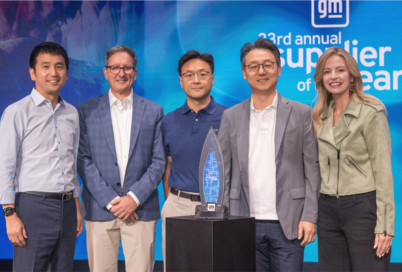LG Strengthens Cybersecurity Leadership With KOLAS IoT Cybersecurity Testing Accreditation
Company Recognized for Advanced Global Testing Capabilities,
Expands Its AI-Based “LG Shield” Security System

SEOUL, Jan. 15, 2025 — LG Electronics (LG) is enhancing its cybersecurity capabilities for connected devices in response to advancements in artificial intelligence (AI) and the widespread adoption of the Internet of Things (IoT).
LG’s SW Testing Laboratory has recently obtained accreditation to perform cybersecurity testing for IoT devices from the Korea Laboratory Accreditation Scheme (KOLAS), a part of the Korean Agency for Technology and Standards (KATS).
This accreditation is globally recognized under the International Laboratory Accreditation Cooperation Mutual Recognition Arrangement (ILAC-MRA). Consequently, test reports issued by LG’s SW Testing Laboratory – testing compliance with the European Telecommunications Standards Institute’s (ETSI) cybersecurity standards for IoT devices (EN 303 64511 and TS 103 70122) – will carry the same weight as those issued by other accredited testing laboratories in over 100 countries, including the U.S. and Japan.
KOLAS’ IoT cybersecurity testing accreditation validates the credibility of LG’s existing testing processes. By acquiring the ability to internally test the cybersecurity of its products, LG will significantly reduce both the cost and time needed to obtain accredited test reports for its new and upcoming innovations.
As IoT and AI products become more prevalent and related security regulations are established, LG will continue to efficiently manage and rapidly respond to cybersecurity testing requirements across various global markets.
LG’s SW Testing Laboratory is the first manufacturer-run testing laboratory in South Korea to receive KOLAS’ internationally-recognized accreditation for software testing. The lab has also expanded its expertise to include home appliance software safety and automotive software safety. LG aims to leverage both its quality testing accreditation and cybersecurity testing capabilities to provide customers with reliable, high-quality products and security solutions.
Meanwhile, LG is actively pursuing Responsible Intelligence – one of the key pillars of the company’s Affectionate Intelligence – and is continuously reinforcing security measures for its AI-enabled products. LG has applied its sophisticated cybersecurity processes and solutions to provide robust digital protection for network-connected products and any shared or stored customer data.
More specifically, LG employs a comprehensive array of cybersecurity protocols throughout the product lifecycle, from initial planning and development through to post-launch usage. This approach minimizes the risk of data breaches by empowering the secure management of both sensitive personal information and user data generated during product usage.
In addition, LG is expanding the implementation of “LG Shield,” the company’s advanced AI-based security system, across its growing lineup of AI-enabled products. LG Shield proactively protects products, software platforms and user data using a variety of advanced processes, methods and technologies.
LG Shield prevents data leakage by encrypting sensitive information, including personal data, and securely storing encryption keys in segregated digital spaces. It also protects products’ operating systems by utilizing a secure server environment and real-time threat detection to prevent unauthorized access and tampering with operational code or data.
“We will continue to strengthen our cybersecurity capabilities to meet the latest global cybersecurity regulations and improve our software competitiveness,” said Park In-sung, head of the Software Center at LG Electronics.
# # #
1 Security requirements for developers/manufacturers and stakeholders of consumer IoT products.
2 Conformity assessment method and test specifications for consumer IoT product security requirements.



![[Executive Corner] LG’s Vision for AI-Driven Homes Powered by Affectionate Intelligence](https://www.lgnewsroom.com/wp-content/uploads/2024/09/ImageExecutive-Corner-main-402x272.png)


